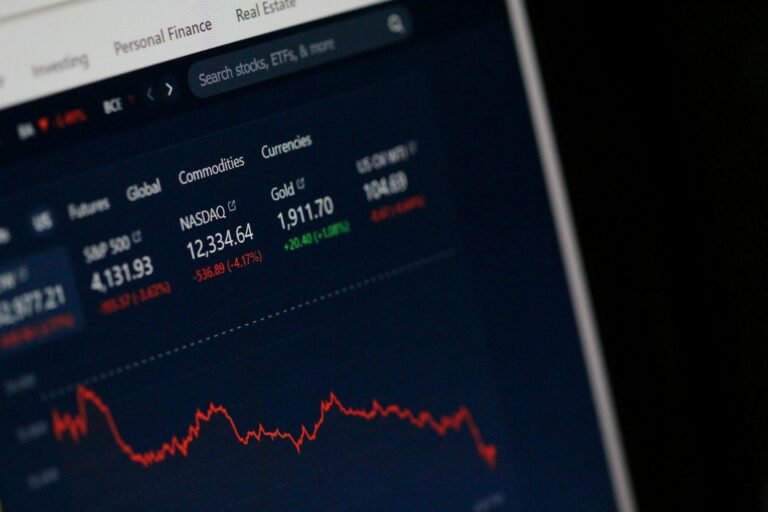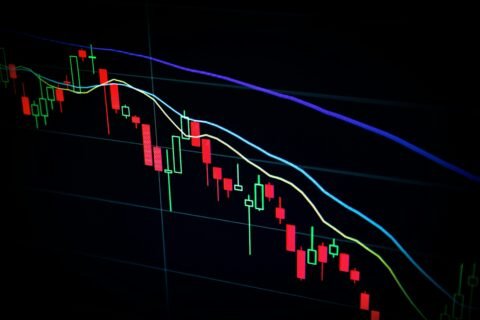Photo by Anne Nygård on Unsplash
Introduction
The currency market, often referred to as the forex (foreign exchange) market, plays a crucial role in global finance. It’s where currencies are traded, allowing businesses, governments, and individuals to convert one currency into another. Despite its significance, there are several misconceptions and myths surrounding the currency market that can obscure understanding and deter potential investors. Bitcoineer is an Investment education firm. This article aims to debunk common myths about forex trading, providing clarity on its nature, accessibility, risks, and opportunities.
Myth 1: Forex Trading is Gambling
One of the most persistent myths about forex trading is that it’s akin to gambling. While both activities involve risk and uncertainty, they differ significantly in their underlying principles and execution. Gambling outcomes are often based on chance, without a systematic approach to decision-making. In contrast, forex trading involves analyzing market trends, economic indicators, and geopolitical events to make informed decisions. Successful traders employ technical analysis (studying price charts and patterns) and fundamental analysis (assessing economic data and news events) to anticipate currency movements. They also implement risk management strategies to mitigate potential losses, emphasizing discipline and strategy over chance.
Myth 2: Only Banks and Financial Institutions Can Trade Currencies
There’s a misconception that only banks and large financial institutions have access to the forex market. While these entities certainly play a significant role, the advent of online trading platforms and brokerage firms has democratized access to retail traders and individual investors. Retail traders can open forex trading accounts with relatively low capital requirements, accessing leverage provided by brokers to amplify their trading positions. This accessibility has empowered individuals worldwide to participate in currency trading, contributing to the market’s liquidity and diversity of participants.
Myth 3: Forex Trading is Always High Risk
Forex trading is often perceived as inherently risky due to the leverage involved and the potential for rapid price movements. While it’s true that forex trading can be volatile, risk management techniques can significantly mitigate these risks. Successful traders use strategies like setting stop-loss orders (automatic triggers to exit trades at predefined levels) and position sizing (adjusting trade size based on risk tolerance) to control potential losses. Additionally, understanding market dynamics and staying informed about economic events can help traders make informed decisions, reducing speculative risk.
Myth 4: Technical Analysis is the Only Way to Trade Currencies
Technical analysis, which involves analyzing historical price charts and patterns to predict future price movements, is a widely used approach in forex trading. However, it’s not the only method available. Fundamental analysis plays an equally crucial role, focusing on economic indicators, central bank policies, geopolitical events, and market sentiment. Successful traders often combine both technical and fundamental analysis to develop comprehensive trading strategies. By understanding the broader economic context and market psychology, traders can make more informed predictions about currency movements.
Myth 5: Forex Trading Requires a Large Amount of Capital
Contrary to popular belief, forex trading doesn’t necessarily require a large amount of capital to start. While having more capital can provide greater trading flexibility, many brokers offer micro and mini accounts that allow traders to start with minimal investments. These accounts typically offer leverage, enabling traders to control larger positions with a smaller initial capital outlay. This accessibility has lowered the barrier to entry for retail traders, facilitating participation in the forex market with modest sums and the potential for incremental growth over time.
Myth 6: Currency Markets Are Manipulated
Concerns about market manipulation in the forex market are prevalent but often misunderstood. While instances of manipulation have occurred, regulatory measures and oversight by financial authorities aim to maintain market integrity and fairness. Forex markets operate in a decentralized manner, with transactions conducted electronically over-the-counter (OTC) through a network of banks, brokers, and financial institutions. Transparency initiatives and regulatory frameworks help mitigate the risk of manipulation, ensuring a level playing field for participants.
Myth 7: It’s Impossible to Make Consistent Profits in Forex Trading
A common myth perpetuated among potential forex traders is the belief that consistent profitability is unachievable. While forex trading involves risk and no guarantees of profits, many traders have achieved success through discipline strategies and continuous learning. Consistent profitability requires a thorough understanding of market dynamics, risk management techniques, and the development of a personalized trading plan. Successful traders adapt to changing market conditions, refine their strategies based on experience, and remain disciplined in their approach to trading. Examples of successful traders underscore that with dedication, knowledge, and effective risk management, consistent profits in forex trading are attainable.
Conclusion
In conclusion, understanding the realities of the currency market is crucial for anyone considering forex trading. By dispelling common myths and misconceptions, this article has highlighted the accessibility, risks, and opportunities inherent in forex trading. Aspiring traders need to approach forex markets with a solid understanding of market principles, risk management strategies, and a commitment to continuous learning. By doing so, individuals can navigate the complexities of currency trading more effectively, potentially achieving their financial goals in a dynamic and globally interconnected market.

Daniel J. Morgan is the founder of Invidiata Magazine, a premier publication showcasing luxury living, arts, and culture. With a passion for excellence, Daniel has established the magazine as a beacon of sophistication and refinement, captivating discerning audiences worldwide.





